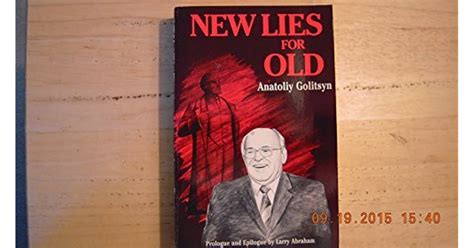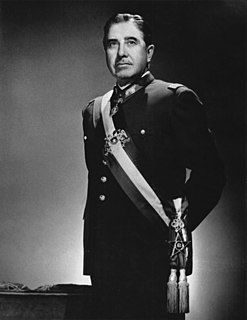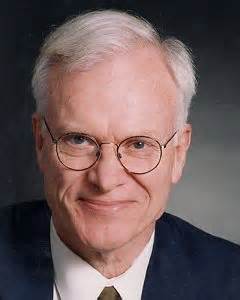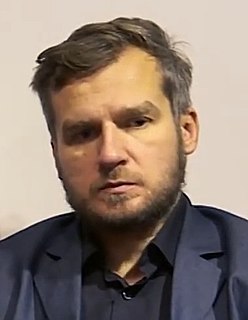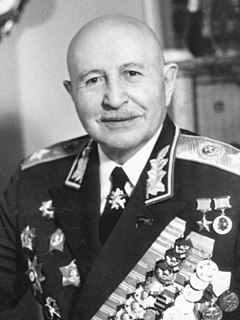A Quote by Anatoliy Golitsyn
The Soviet transition to a new political structure shows that the Soviet strategists are thinking, planning and acting in broad terms, way beyond the imagination of Western politicians. For this reason Western politicians cannot grasp the fact that the Soviet intention is to win by 'democratic' means. Through transition to a new system, the Soviets are revitalising their own people and institutions, and they are succeeding. Contrary to Western belief, they are holding their ranks together.
Related Quotes
They [the Soviets] intend...to induce the Americans to adopt their own 'restructuring' and convergence of the Soviet and American systems using to this end the fear of nuclear conflict.... Convergence will be accompanied by blood baths and political re-education camps in Western Europe and the United States. The Soviet strategists are counting on an economic depression in the United States and intend to introduce their reformed model of socialism with a human face as an alternative to the American system during the depression.
The freedoms which had been so hard won from colonial domination were being crushed by Soviet-inspired and funded military and political forces. Their clear intention was to deprive the people of their democratic freedoms. As history shows, this is what had happened in the Soviet Union and in Cuba, and continues to be the case in other parts of the world.
It isn't the changes that do you in, it's the transitions. Change is not the same as transition. Change is situational: the new site, the new boss, the new team roles, the new policy. Transition is the psychological process people go through to come to terms with the new situation. Change is external, transition is internal
Back in the days of the Soviet Union, the countries of Eastern Europe, being under the control of the USSR, would call their states "people's republics." The sham that is currently going on in the states of the former Soviet Union is due to the fact that the politicians in power are eager to polish up their image abroad.
To most people in the U.K., indeed throughout Western Europe, space exploration is primarily perceived as 'what NASA does'. This perception is - in many respects - a valid one. Superpower rivalry during the Cold War ramped up U.S. and Soviet space efforts to a scale that Western Europe had no motive to match.
To most people in the UK, indeed throughout Western Europe, space exploration is primarily perceived as 'what NASA does'. This perception is - in many respects - a valid one. Superpower rivalry during the Cold War ramped up US and Soviet space efforts to a scale that Western Europe had no motive to match.
The fascinating thing to a dispassionate observer about the structure of life in the Soviet Union is that in their efforts to produce an unknown that we may let its ideologists call Socialism the Communist dictators have produced a brutal approximation of monopoly Capitalism, a system that has all the disadvantages of our own, with none of the palliatives which come to us from surviving competition and from the essential division of economic and political power which has so far made it possible for the humane traditions of the Western world to continue.
When Cuba lost their fossil fuel pipeline when the Soviet Union collapsed in 1990. Overnight they had no choice, they had to transition to clean energy, they didn't have any fuel to burn, and they also had to transition to a healthy food system, an organic system - their economy is crashing, this was not a planned transition. This was a crisis, but a crisis nonetheless, in which pollution went away. And it's very instructive to see what happened to their health.
We have won on the Arlov, Kursk, Belgorod, and Kharkov grounds. We won because the country was being defended not only by the army but by the entire Soviet people. The Socialist economy, Soviet political structure, and Marxist-Leninist ideology proved their unarguable excellence against the Fascist economy, Fascist political structure, and Fascist ideology of Germany.
Now that we are used to globalisation it's hard to imagine a time when the countries behind the iron curtain were largely obscured from the western gaze. The Soviet bloc was a genuine mystery. Such was the dehumanisation of the Soviets that Sting could wonder in song if 'the Russians love their children too.'
